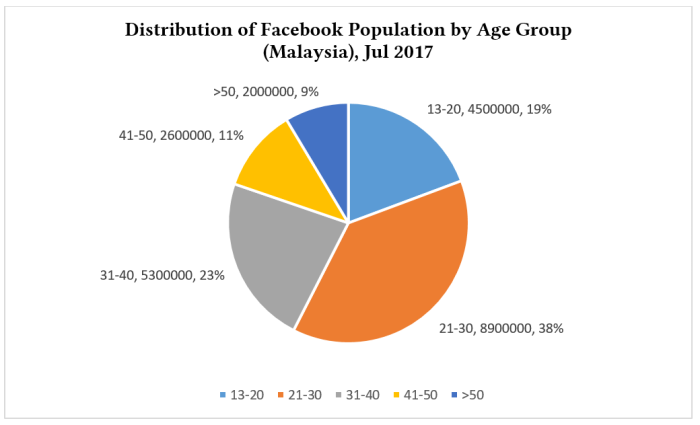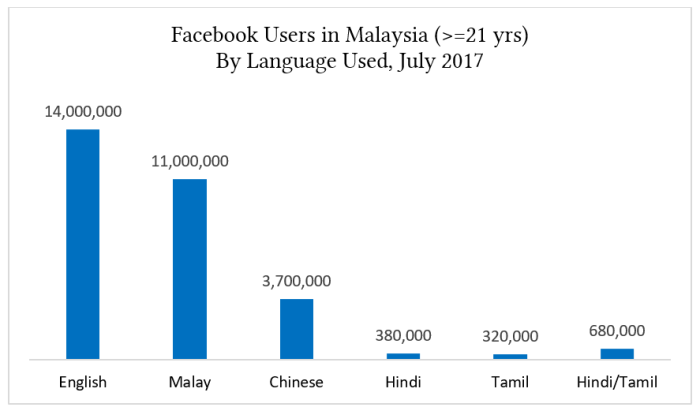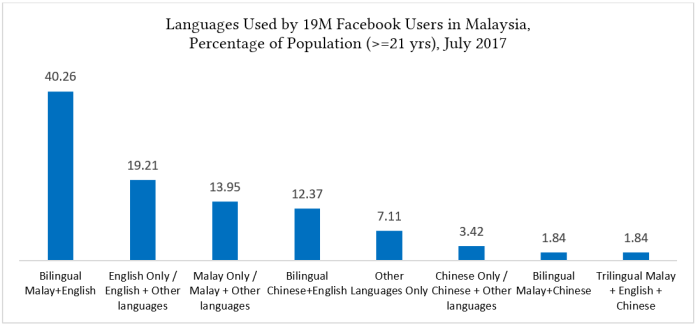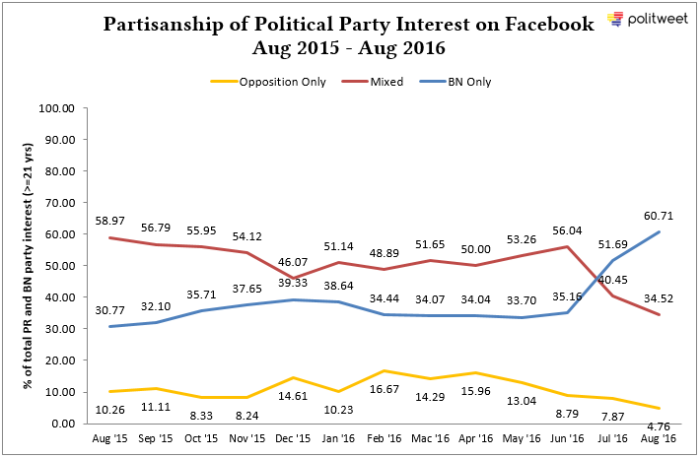Posts Tagged ‘UMNO’
Election Forecast for Pakatan Harapan in Peninsular Malaysia (GE14)
1. Introduction
On January 10th 2018 a detailed listing of the 165 seats being contested by Pakatan Harapan (PH) component parties in Peninsular Malaysia was published in The Star and Malaysiakini (https://www.malaysiakini.com/news/408114). Based on this listing, the seat division is as follows:
- 52 seats contested by PPBM
- 51 seats contested by PKR
- 35 seats contested by DAP
- 27 seats contested by AMANAH
This report provides an overview of the seats contested by component parties in PH, the winning odds and forecasted results for each seat under a number of different scenarios. Analysis was performed based on the 2017 1st Quarter (Q1) electoral roll, 2016 3rd Quarter (Q3) electoral roll, State and Federal seat results from the 13th General Election (GE13) and individual historical voting patterns from GE12 (2008) and GE13 (2013).
A copy of this report in PDF format can be downloaded at https://drive.google.com/file/d/16glv67fwRybQxdKS7X1fFC9R1SN0TSGy/view?usp=sharing
Response to The Race of Bersih 4 Protesters by Twitter Users in Peninsular Malaysia
1. Background
From August 29th – August 30th a rally entitled ‘Bersih 4’ was held on the streets of Kuala Lumpur, Kuching, Kota Kinabalu and other locations globally.
The demands of the rally were for Prime Minister Najib Razak to step down and a transitional government to be formed. This government would need to implement 10 institutional reforms within the next 18 months to ensure the next General Election would be conducted in a clean, free and fair manner:
- Reform of electoral system and process
- Reform of the Election Commission (EC)
- Separation of Prime Minister and Finance Minister
- Parliamentary Reform
- Separation of the functions of Attorney General and Director of Public Prosecution
- Reform of the MACC
- Freedom of Information laws
- Asset declaration by Ministers and senior state officials
- Abolishment of/Amendment to draconian laws
- Establishment of the Independent Police Complaints and Misconduct Commission (IPCMC)
During the first day of the rally the race of the participants in Kuala Lumpur was raised as an issue by the media and by social media users. It was clear that the majority of the protesters were ethnically Chinese. The ethnic majority was also reported by Malaysiakini [1], Utusan Malaysia [2] and Berita Harian [3].
By our own estimates, 79,919 – 108,125 people attended the Kuala Lumpur rally over the 2-day period. Based on photographs seen during our crowd estimation, we would roughly estimate that 60% – 80% of the protesters were ethnically Chinese.
The race of the protesters became an issue due to media reports and Bersih 4 supporters and detractors highlighting the race of the protesters. This provoked a response by users on Twitter as they tweeted their own opinions on the rally.
2. Our Analysis
We performed opinion-based analysis on 500 users based in Peninsular Malaysia who tweeted about Bersih 4 (and related terms), race (e.g. ‘Melayu’, ‘Cina’, ‘Malay’, ‘Chinese’), racism and related terms from August 29th – September 2nd 2015. The margin of error is +/- 4.38%.
Users were selected based on their tweet content and activity during this period. Sampling was done per-state based on the current estimated user population.
Spammers, news agencies and accounts with automated tweets were not included in the sample.
Users who were only observing the number of Chinese present were not included in the sample. This was because we wanted to gauge their opinion on the Chinese majority and whether it was an issue to them.
From this dataset we analysed the individual Twitter user timelines to determine their opinion. This took their tweets, retweets and conversations into account.
One issue we encountered was a lack of users in East Malaysia tweeting about Bersih 4 and racial terms. Both sets of data were too limited to consider using for analysis. For this analysis we only focused on users in Peninsular Malaysia.
Our goal was to gauge the response by Twitter users in Peninsular Malaysia to the race of protesters at the Bersih 4 rally in Kuala Lumpur. Was the race of protesters really an issue, and if so, why?
Read the rest of this entry »
Facebook Census of Political Interest in Malaysia, August 2015
1. Introduction
This document provides a measurement of the political interests of Facebook users in Malaysia and a brief analysis of recent trends. This is based on public information collected from Facebook. Characteristics and interests were chosen based on what would be most relevant to political analysts.
Statistics cover users aged 21 years and older unless otherwise specified.
Some important notes to remember when interpreting figures:
- Total population refers to Facebook users aged 13 years and above.
- Potential voters refer to Facebook users aged 21 years and above.
- Youth refers to Facebook users aged 13 – 20 years.
- Gender breakdown figures do not add up to the total. This may be due to Facebook users not sharing their gender, and also due to rounding errors by Facebook when dealing with specific age groups.
- Figures provided by Facebook are estimates. Some inaccuracies are to be expected.
- Facebook users residing in Malaysia are not necessarily Malaysian citizens.
- Interest in a topic is equal to the number of users expressing interest in a topic.
- To measure interest we used a combination of Facebook Topics (a collection of interests, activities, groups, pages, status updates and job history identified by a common term determined by Facebook e.g. ‘United Malays National Organization’) and specific Group and Page names (e.g. Friends of BN).
- These are used to collect the number of users interested in a given party/coalition/politician/group. For example, a user mentioning a party name in a status update; sharing a news link related to the party or sharing content from a party-affiliated page would count towards the total interest in that party
- Interest in a political party does not indicate support for the party, only awareness
- Audience refers to the population of users that express interest in a topic.
- Based on our research to date, Pages that are of type ‘politician’ are not always included under related Facebook Topics. For example, not all ‘Tony Pua’ (MP, PJ Utara, DAP) Page likes are included under interest in ‘DAP’. However because Facebook does not make Topic details available we cannot easily determine which politicians, if any, were included.
- Statistics on the Opposition primarily refer to component parties of the former Pakatan Rakyat – PKR, PAS and DAP. Interest in PSM is included in total statistics for the Opposition, but is not listed separately due to its small audience.
Analysis of Support for Bersih 4 by Twitter Users in Malaysia
1. Background
On July 29th Bersih 2.0 announced that a rally entitled ‘Bersih 4’ would be held on the streets of Kuala Lumpur, Kuching and Kota Kinabalu from August 29th, 2pm to August 30th. The demands of the rally are for Prime Minister Najib Razak to step down and the following institutional reforms to be implemented:
- Clean Elections
- Clean Governments
- Saving Malaysia’s Economy
- Right to Dissent
- Strengthening Parliamentary Democracy (added on August 14th)
On August 14th Bersih released a statement adding a demand for a transitional government to be formed after Najib’s resignation. This government would need to implement 10 institutional reforms within the next 18 months to ensure the next General Election would be conducted in a clean, free and fair manner:
- Reform of electoral system and process
- Reform of the Election Commission (EC)
- Separation of Prime Minister and Finance Minister
- Parliamentary Reform
- Separation of the functions of Attorney General and Director of Public Prosecution
- Reform of the MACC
- Freedom of Information laws
- Asset declaration by Ministers and senior state officials
- Abolishment of/Amendment to draconian laws
- Establishment of the Independent Police Complaints and Misconduct Commission (IPCMC)
On August 27th Opposition MPs from PKR, DAP and GHB released a joint statement declaring they would work with BN MPs to form a new government provided that Anwar Ibrahim and other prisoners of conscience be released; and political reforms be the core agenda of the new government.
2. Our Analysis
We performed opinion-based analysis on 385 users based in Malaysia who tweeted about Bersih 4 and related terms from July 28th – August 25th 2015. The margin of error is +/- 4.99%.
Users were selected based on their tweet content and activity during this period. Sampling was done per-state based on the current estimated user population.
Spammers, news agencies and accounts with automated tweets were not included in the sample.
From this dataset we analysed the individual Twitter user timelines to determine their opinion. This took their tweets, retweets and conversations into account.
Our goal was to gauge public support by Twitter users in Malaysia for the Bersih 4 rally taking place from August 29th – August 30th in Kuala Lumpur.
Based on this analysis we categorised users as belonging to one of the following categories:
- Support
- Neutral
- Don’t Support
These were further divided into the following categories:
- Support
- Support (Najib must resign)
- Neutral
- Don’t Support (general)
- Don’t Support (apathy)
The results are shown in the following charts.




